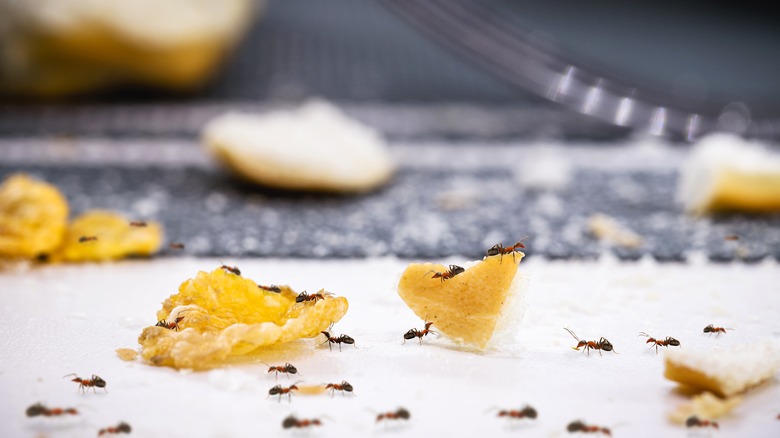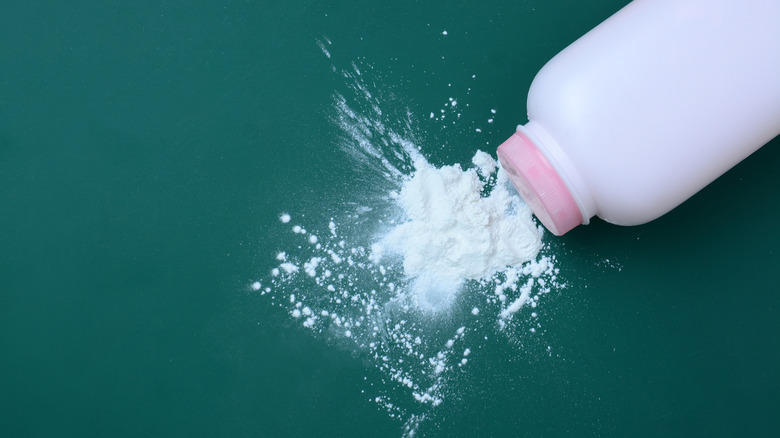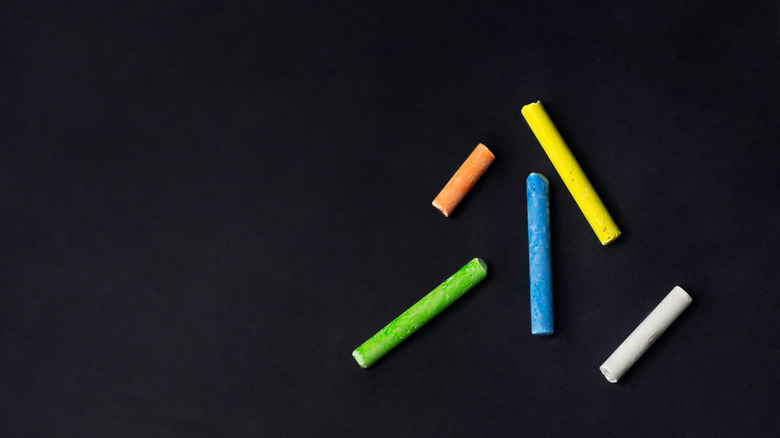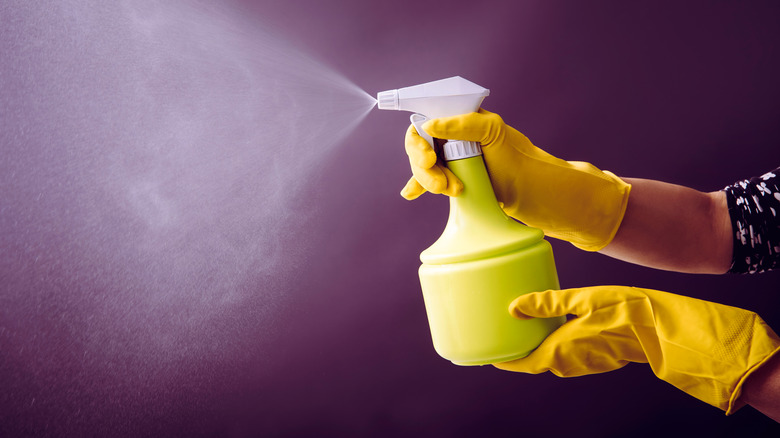The Baby Powder Hack That Can Keep Ants Out Of Your Home
Ants are a constant factor in household pest management. They arrive in droves and can be incredibly hard to expel from the home. AntMaps notes that ants live on nearly every landmass on Earth (excluding a few islands and the Arctic and Antarctic regions). This means that no matter where you call home, it's likely that you've had to deal with them in the house — interaction seems to be a common feature of humanity and anthood alike!
But their entry into your home is a basic behavior. The Conversation notes that ants arrive in the kitchen, bathroom, or a bedroom in search of food or a new place to cultivate a growing habitat for the colony. They are efficient scrap hunters, and in a purely functional sense, they can be helpful in removing leftover scraps of food that other pests might be attracted to as well. However, ants bite and can cause other problems in the home, not to mention the unsightliness of a trail of ants leading away from your trash while entertaining guests. Ants are typically not wanted in the home, but keeping them banished to the natural environment can seem like a losing battle.
Baby powder masks the trail for future invaders
Baby powder is an effective household item for a variety of needs. It's a great tool for fixing squeaky floors and can also be effective in your fight against an ant infestation. The distinctive trails left behind by ants result from the tiny creatures' pheromones. With the pheromones laid down along the trail, other ants can easily find their way through scent from the colony to the food source inside your home. This also explains why blocking an ant's path results in it getting lost for a short time: It can't locate the secreted trail. Gardening Etc. explains that sprinkling baby powder along the trail or at any of their entrance points will most likely deter them from continuing inside simply because they don't like the feel of the powder and would prefer to avoid it.
Note that, though you may have seen contradictory promises elsewhere on the web, baby powder will not actually kill ants. Gardening Etc. also mentions the need to reapply the powder regularly, especially if the area gets wet. This can be an effective first step, but if your pest problem has gotten far out of hand, you'll likely need to take more serious measures.
Combined with chalk, this simple tactic can effectively deter ants
Chalk can magnify the natural ant-fighting effect of this simple measure. Chalk provides the aforementioned barrier between the ant and its pheromone-created pathway. While chalk looks like nothing more than a simple line drawn on a surface, it's actually a hardened substance that sheds off the stick when pulled across concrete, a chalkboard, or another surface. The dust that forms the lines increases the physical barrier that confuses the ants.
First locate the entry points that ants have been using to traverse your home at will and draw small chalk lines across the floors or walls. Then cover them with a sprinkle of baby powder for good measure. By diminishing the scent of the pheromones left in your home and coating ants in baby powder to take back to the colony (further reducing the pheromone potency), you layer a powerful suppressant onto the floors and walls of your home. Taking this additional step while remembering to close entryways will reduce ant presence even further.
A less messy solution
Although effective, the idea of spreading baby powder and chalk throughout our homes can be a triggering thought for those who prefer keeping their residence clean and tidy. Luckily, there are other safe and effective measures you can take to get rid of these persistent creatures. For instance, distilled white vinegar has become an increasingly popular and praised home staple that's used to clean bathrooms, floors, glass, and more. Vinegar can also be used to eliminate the scent of an ant's trail, explains Scout Pest Control, again making it difficult for other ants to find and follow the same path.
All you'll need to do is pour equal amounts of distilled white vinegar and water into a spray bottle, as well as a few drops of dish soap to ensure the solution sticks to the surface. Due to the vinegar's acidic nature, avoid using this kind of solution on plants and natural finishes, such as marble and granite. Furthermore, avoid using apple cider vinegar altogether, because the sugar it contains is sure to attract more bugs rather than act as a repellent.



